 Following the Alex Barton story, the topic of inclusion was one many were discussing. Friends and family have talked to me about it. I think, first and foremost, inclusion has a place and should be available to every child. I'm a big believer that not only do disabled students gain from an inclusive setting, but that the typically developing peers gain a enormous amount (tolerance, understanding, to name two) as well. I also feel that inclusion is not always the answer, not all the time. Some children do better in a small classroom setting. Some need more supports and services only available in a special education class. The bottom line is this: inclusion should be available to every student. "All qualified persons with disabilities within the jurisdiction of a school district are entitled to a free appropriate public education." For some that will mean a (separate) special education setting, for others mainstreamed with typically developing peers, and still for others, a mix of both. Whatever the individual outcome or placement, the goal should always be in finding the most appropriate setting for each child.
Following the Alex Barton story, the topic of inclusion was one many were discussing. Friends and family have talked to me about it. I think, first and foremost, inclusion has a place and should be available to every child. I'm a big believer that not only do disabled students gain from an inclusive setting, but that the typically developing peers gain a enormous amount (tolerance, understanding, to name two) as well. I also feel that inclusion is not always the answer, not all the time. Some children do better in a small classroom setting. Some need more supports and services only available in a special education class. The bottom line is this: inclusion should be available to every student. "All qualified persons with disabilities within the jurisdiction of a school district are entitled to a free appropriate public education." For some that will mean a (separate) special education setting, for others mainstreamed with typically developing peers, and still for others, a mix of both. Whatever the individual outcome or placement, the goal should always be in finding the most appropriate setting for each child.
My daughter is in a special education program at this point. Our district, and truly our state, is not one that has wonderful services for autism (or anything else under the special education umbrella). I don't even know if I could call the services "bare bones," as that seems like giving them too much credit. We have talked seriously about moving, especially when our child gets older, to have more services (specifically ones catered to her needs). I would say only about 60% of her needs are being addressed and met in her program. We supplement with private therapies and accommodations (provided by us).
There is discussion of mainstreaming her in a year, that is the goal for this upcoming IEP. Part of me is excited to have my child in that setting--in the event she is supported and it is a positive experience. Our school primarily opts for pulling children out for services, and is not quick to offer a para to a child. For parents like us, we are left having to decide whether we risk our child having a negative experience (too many students, lack of routine and understanding, not enough supports, etc.) in a regular classroom or if we are holding her back by keeping her in a special ed class. We should have more options available, but sadly, there are not. So, we begin to focus our thoughts on inclusion and making it work.
I have found some websites that look to be helpful (I've only spent a bit of time on each):
PBS Parents - Inclusive Communities "Learn about improving the overall quality of life for children with or without disabilities by promoting inclusion and respect for differences."
Paula Kluth's Inclusive Classroom Site
"Toward more inclusive classrooms and communities"
Inclusion Connection
It is the mission of the Inclusion Connection to advocate for persons with disabilities, supporting them in realizing self-determined lives, educating families and promoting inclusive communities.
Celebrating All of Us
Operation Respect "The inclusion of children with special gifts and needs in a compassionate environment that allows peer recognition of the unique character of each child or adult produces what can only be viewed as an island of humanity, caring, respect, and peace." - Peter Yarrow, founder of Operation Respect
Positively Autism has some information on inclusion, including this study:
Positive outcomes have also been reported for children with autism who participate in inclusive programs. According to a review of research conducted by Levy, Kim, and Olive (2006), the presence of typically-developing children in educational programs for children with autism was reported to have positive effects on social skills and behavior for the children with autism. In a report on an inclusive preschool program by Jan S. Weiner (2002), it was reported that one-hundred percent (nine out of nine) of the preschool children who completed the inclusion program (three of whom have autism) went on to attend a general education Kindergarten classroom, versus a separate special education classroom. This is a very small number of participants, so we do need to keep in mind that these results may not be typical for the larger population, but I think that the results are encouraging. Additionally, three out of the four preschools that participated in the project elected to continue their inclusion programs, even after the research funding ended.Lisa Jo Rudy points out that inclusion just may not work for everyone. That's something many of us can relate to. I think each student should be looked at as an individual. Simply carrying an autism diagnosis should not pigeon-hole that child into special ed. Likewise, just because another autistic child was successful being mainstreamed, that does not mean it will work for every other student.
It's interesting, I've known parents on both end of the battle: those who are wanting more special education services for their autistic child and those who are pushing for inclusion. I think schools need to start with a clean slate each time a new child enters their district. The administrators and those who play a role in the student's placement should be free of prejudices and the stories of past children. History can play a nice role as far as recommendations, though. For example, "this" worked for another student and we wonder if it is a good option for this child. Aside from that small use of past experiences, it's important for schools and parents to come together, and devise a child's unique plan for educating each autistic student (hence, the name individualized education plan!).
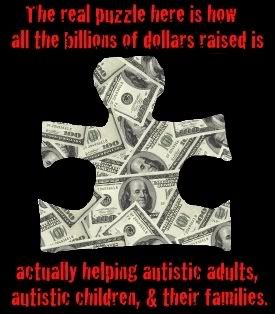
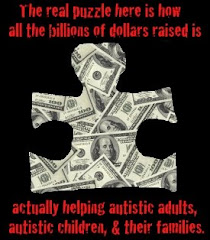



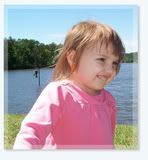

 This Way of Life
This Way of Life



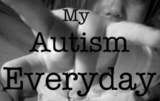





 "Autism is a way of being. It is pervasive; it colors every experience, every sensation, perception, thought, emotion, and encounter, every aspect of existence. It is not possible to separate the autism from the person."
- Jim Sinclair
"Autism is a way of being. It is pervasive; it colors every experience, every sensation, perception, thought, emotion, and encounter, every aspect of existence. It is not possible to separate the autism from the person."
- Jim Sinclair







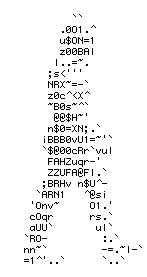

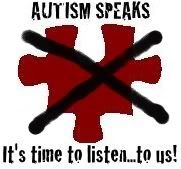












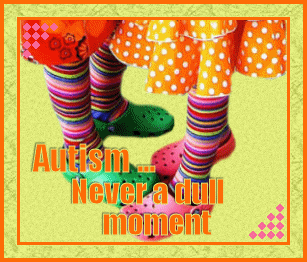

No comments:
Post a Comment